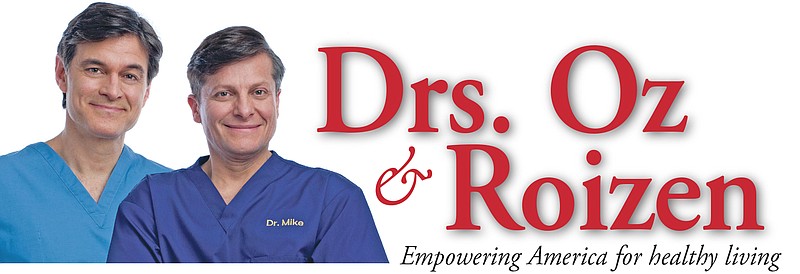On Sept. 9, 2019, Dr. Oz revealed that his mother Suna had been diagnosed with Alzheimer's disease and that he had been tested and carries both the E4 and E2 gene. The E4 raises the risk of developing AD twofold, while E2 lowers it by about 40%. That means at age 80, Dr. Oz has a 20%-22% chance that he will develop AD, while someone without the genetic predisposition has about a 15% risk of developing the condition.
He shared the deeply personal information because he wants you to know how easy (even for a doctor) it is to miss the signs that a loved one may be developing dementia and to know the power you have, even if you are genetically predisposed to AD, to prevent the devastating condition. (You can watch the episode at DoctorOz.com.)
Early Warning Signs of Developing Cognitive Problems and Possible AD
If you notice these signs, you should talk to your near-and-dear about getting a physical and cognitive exam, and talk to his or her doctor about the symptoms you are observing. Here are some common early signs:
Challenges in planning.
Difficulty completing tasks.
Confusing time and place. Dr. Oz said that his mom would often ask him to come over for lunch, not realizing he was in the U.S. and it would require an 11-hour flight to get to Turkey.
Problems with words - finding and understanding them.
Trouble understanding visuals. He recounted that his mom would ask for her sofa to be moved into a position in a room that it clearly wouldn't fit in.
Misplacing things and losing the ability to retrace steps.
Prevention
There are many steps you can take to reduce your risk of cognition problems and AD! For Dr. Oz, they included these recommendations from his evaluating doctor: lowering his LDL cholesterol; adding high-intensity interval training to his routine (it can help improve associative memory); taking an omega-3 supplement daily; and increasing his intake of vitamin B12.
The other powerful ways to reduce your risk of cognition problems and AD are:
Eliminate belly fat and reduce inflammation.
Follow a Mediterranean-style diet that's centered around leafy greens, whole fruits and vegetables, whole grains in moderation, lean protein, fatty fish (like salmon), and healthy fats such as nuts, seeds and olive oil. Avoid simple sugars and most saturated fats.
Exercise consistently. According to a study in Neurology, a bigger waistline can increase your risk of Alzheimer's nearly threefold. Aim to exercise at least three or four times a week for a total of 150-300 minutes, with a mix of aerobic workouts with short bursts of high-intensity interval training and resistance/weight training.
Aim for seven to eight hours of quality sleep nightly.
If you are not getting enough sleep, you fuel the production of brain-damaging amyloid plaques, according to NIH Research Matters. To improve your sleep, check out my.clevelandclinic.org, and search for "Tips for a Good Night's Sleep."
Drink moderately. Don't smoke or vape.
A 2018 study in the BMJ found that folks who consumed more than seven medium glasses of wine or six pints of average-strength beer weekly increased their risk for dementia substantially! And, as you know, smoking anything damages your circulatory system and cheats the brain of oxygen and nutrients.
Challenge and soothe your brain.
You want to challenge your brain to keep current abilities up and running and to acquire new skills. Best ways: Dr. Roizen is a big fan of speed-of-processing games like Double Decision and Freeze Frame. Also, study a new language, take up a new hobby, and interact with people in a new way through volunteering and helping others.
Ease your stress response (and brain inflammation) with meditation, which also increases brain grey matter density!
Chill in a hot sauna for 20 minutes four times weekly; see a dental pro and floss daily. All decrease brain inflammation and increase heart health!
Mehmet Oz, M.D. is host of "The Dr. Oz Show," and Mike Roizen, M.D. is Chief Wellness Officer and Chair of Wellness Institute at Cleveland Clinic. To live your healthiest, tune into "The Dr. Oz Show" or visit sharecare.com.
(c)2019 Michael Roizen, M.D. and Mehmet Oz, M.D.

